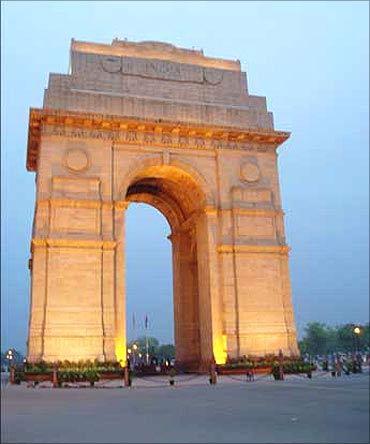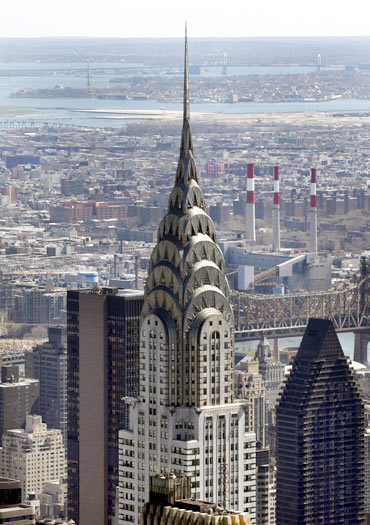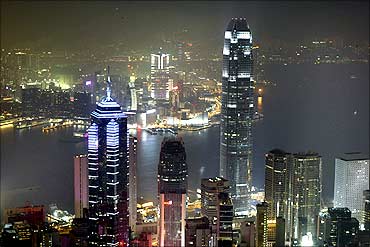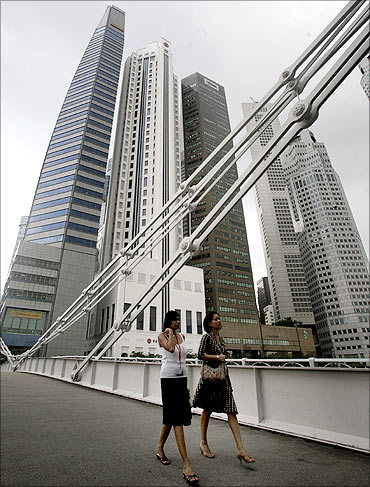
India has topped a list of the most 'over-regulated countries in the world' in a survey on Asian business and politics by Hong Kong-based Political and Economic Risk Consultancy Ltd.
1. India
India was rated worst in terms of over-regulation, scoring 9.16 points out of 10.
The survey used responses from American executives about regulatory conditions in the United States to provide a benchmark against which to assess the Asian scores.
Click NEXT to read on . . .

2. China
China was the second-most overregulated country with 9.04 points.
In general, in India regulations were complex and non-transparent, while standards and certifications procedures were onerous, according to the PERC survey findings.
Foreign exchange, capital transactions and some credit operations were subject to approvals, restrictions and additional requirements that went far beyond what most other countries require, concluded the survey.
Even procedures for something as simple as getting a tourist visa were more cumbersome in India than was typical elsewhere, it pointed out.
It also cited specific examples from the World Bank's Doing Business Survey of why India's regulatory system deserves to be graded as poorly as it was. It can take a month-and-a-half to register property, almost 200 days to obtain a construction permit, over 1,400 days to enforce a contract and seven years to close a business.
Click NEXT to read on . . .

3. Japan
Japan is the third most over-regulated nation, with 3.28 points.
Regulations in the country were frequently not enforced, which raised the question of why they were on the books at all, noted the survey.
'In a recent scandal involving the telecommunications ministry's mishandling of a landmark allocation of mobile telephone spectrum, as many as 85 of 122 new licences which were bundled with the bandwidth allocation were issued to companies that did not have the required capital to seek bandwidth,' the survey pointed out.
'Documentation requirements for both exports and imports in India are onerous,' the PERC survey pointed out.
Click NEXT to read on . . .

'Labour requirements are strict and companies lack flexibility on hiring and firing workers in India,' it concluded.
These companies 'suppressed facts, disclosed incomplete information and submitted fictitious documents', according to the survey.
'Of course they could not have done so without the complicity of bureaucrats at the ministry, who overlooked qualification shortcomings and arbitrarily moved forward the cut-off date for applying by one week to favour some companies that had applied earlier, while leaving others out,' it said.
Click NEXT to read on . . .

4. The United States of America
The United States is the fourth most-overregulated nation with 1.51 points.
A few Indian states were trying to differentiate themselves from others by stressing how they were more efficient and pro-business.
The states of Gujarat and Tamil Nadu, for example, were trying to market themselves as being pro-business and efficient, said the survey.
Their actual situation was not as good as the states' marketing rhetoric. Nevertheless, the civil services of the both states were given credit by some investors for approving land purchases and environmental permits more quickly than was the case in other states.
'In the case of Gujarat, it has set up a web portal that lets foreign investors track their government requests and complain about delays,' said the survey.
Click NEXT to read on . . .

5. Hong Kong
Hong Kong received the best score in the survey of 0.98 point, making it the least-overregulated country.
Click NEXT to read on . . .

6. Singapore
Singapore is the second least-overregulated country with 1.08 points, according to the survey done in the last quarter of 2010, based on responses from 1,370 executives.